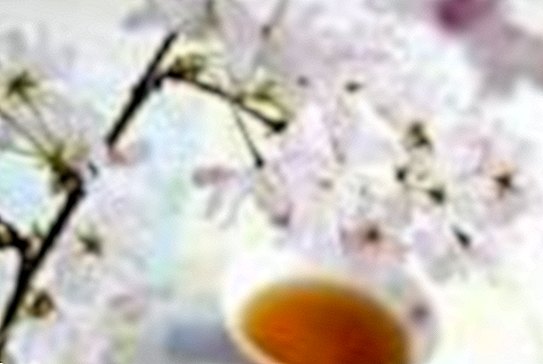Heilkunst Kampo: Drinking tea instead of waiting

A slight pressure on the stomach says a lot. Is it chugging inside? Does it feel tense or limp? On the basis of such signs as well as a precise questioning of the patient, the internist Dr. med. Heidrun Reißenweber from the Research Center for Japanese Phytotherapy at the University Hospital Munich will assess how her patients are treated.
"Fukushin" is the name of this examination method in Japanese. It is part of the ancient healing art of "Kampo" - the Japanese variant of traditional Chinese herbal medicine. The 1500-year-old herbal medicine is used in Japan against functional and chronic diseases as well as against side effects in cancer therapy. But in this country Kampo is hardly known. The old art of healing is considered by experts to be particularly safe and super-effective.
Depending on the findings of the Kampo-typical investigations, the patients receive a tea, which they must drink three times a day before meals. For the preparations, medicinal plants such as ginseng, ginger, peony and cinnamon are dried by pharmacists and cut very finely. Numerous scientific studies prove that the herbs, barks and roots from Japan are extremely reliable.
In her country of origin, the method is not considered an alternative, but as a supplement to traditional medicine. Only graduated physicians may do there additional training as a Kampo specialist. "Kampo fits much better to our modern, scientific conception of medicine than Chinese medicine," said Reißenweber, who after completing her classical medical studies in Germany completed a three-year Kampo training in Japan.
Because the ingredients have been researched so thoroughly, doctors can dose their remedies precisely and economically - and still achieve the optimum effect. That makes the funds particularly compatible. "And if the tea does not taste or the patient even disgusts, that is a sure sign that it is not the right remedy," says Heidrun Reißenweber. If this is the case, a new recipe is put together for the patient.
Unlike traditional Chinese medicine, Japanese herbal preparations are subject to the strictest quality criteria.
The remedies must not contain any pesticides, heavy metals or other harmful substances - Japanese drug regulators watch over this painstakingly. But Kampo is manageable: while Traditional Chinese Medicine works with more than 2,000 plants, Japanese doctors come up with fewer than 300 recipes.
True herb witches are likely to be rather disappointed by the simple application of the Kampo-Arzneitees: Instead of cooking the herbs consuming and abzuseien, you need only a little hot water. Because many preparations are available as practical granules - Instant tea for health, which also fits the modern city life.
But the can help alleviate many ailments: from hoarseness to rash, from migraines to menstrual cramps. In Japan, doctors are tackling chronic diseases such as asthma or atopic dermatitis with Kampo. The plants have also been proven in menopausal problems, chronic gastrointestinal complaints such as irritable bowel, hypertension or rheumatism. Kampo is also used in cancer therapy: The herbs ensure that patients tolerate the aggressive chemotherapy better, they recover faster and that doctors can reduce the amount of medication.
It takes six to eight weeks for the patients to drink the tea - then her suffering usually improves significantly. They hardly have to reckon with side effects. Only rarely does it lead to allergic reactions to any of the ingredients.
However, the art of healing is not quite cheap. Depending on the composition, the Japanese healing drugs are about three times as expensive as Chinese. About 100 euros a month you have to expect, the statutory health insurance does not pay (private reimburse the cost mostly). In Japan, this is different: Kampo has been an integral part of state health care for 40 years.
Kampo medicines can be obtained from international pharmacies. Information and addresses of Kampo doctors in the next city can be found here:
Research Center and Outpatient Clinic for Japanese Phytotherapy Head: Dr. Heidrun Reißweber Medical Clinic - Downtown University of Munich (LMU) Ziemssenstr. 1 80336 Munich Tel. 089/51 60 21 11
Dr. Anna Hutzel Richard-Riemerschmid-Allee 2 81241 Munich Tel. 089/834 04 57
European Academy of Kampo Medicine Sachsenplatz 9/30 A-1200 Vienna Tel. 0043/1/330 85 62
To read more: Ulrich Eberhard: A Guide to Kampo Medicine. Urban and Fischer, 608 pages, 29.95 euros.
Internet: www.kampo-med.com www.eurokampo.at










